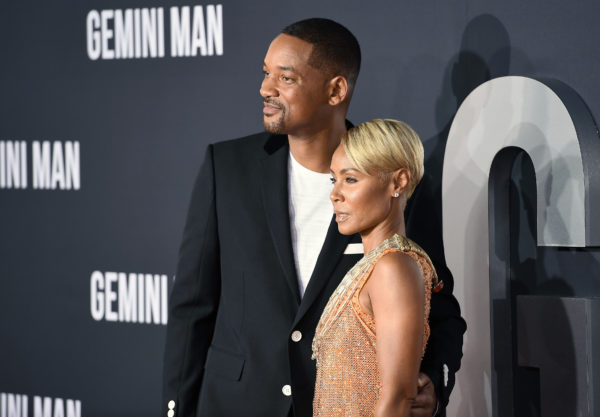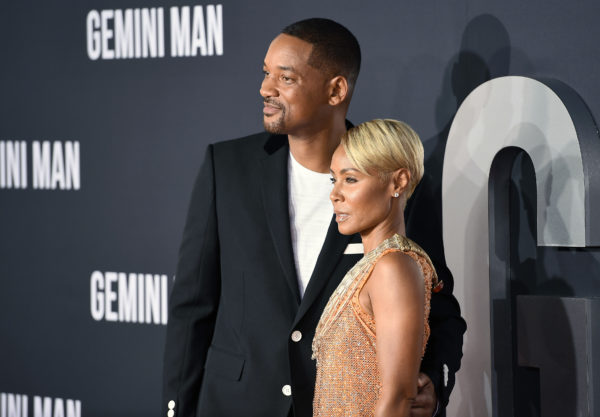Will and Jada Smith’s Westbrook Studios Is Partnering with Nigeria’s EbonyLife Studios for Africa-Based TV and Movie Projects
Westbrook Studios, Jada Pinkett Smith, and Will Smith’s production studio are partnering with Nigeria’s EbonyLife Studios for a succession of film and television projects all taking place on the continent of Africa, Deadline reported.
“We all dream of lofty goals becoming a reality, then one day those dreams come true,” EbonyLife CEO Mo Abudu said. “I’m proud to announce that our vision of EbonyLife Studios being in partnership with Will and Jada’s Westbrook Studios is now real. Westbrook‘s goal is to create and curate powerful and inclusive content.

“This is completely in line with our vision at EbonyLife — to tell global African stories from our perspective,” Abudu continued. “Together, we will be developing a slate of projects that reflect our shared goals. We are beyond excited!”
Eli Shibley, Westbrook Studios Head of International TV & Film, also released a statement: “As we set out to focus our initial slate of international content for the studio business across a diversified set of key territories and regions, the creative energy and world-class artistry coming out of Africa is absolutely undeniable.”
“We are thrilled to be working with a best-in-class producer like Mo and her EbonyLife team to tell stories that uniquely celebrate African characters and perspectives and resonate with fans of great film and television around the world.”
The companies both plan to collaborate on at least two series and one film, including “Dada Safaris,” an “Afropolitan” dramedy series, according to Deadline. “It focuses on “four best friends” who are facing a number of life’s roadblocks, but experience a change in fortune when “one of them inherits her late husband’s safari lodge” and gets her friends to help in renovating and relaunching the business.
“The Gods” is another feature following “a pair of married Cambridge professors” who are trying to discover the cause of an intense wave of “natural disasters,” but in their search find seven newly awakened ancient African gods instead.
Additionally, a comedy feature set in the U.S., “Are We Getting Married?” tells the story of the daughter of an exorbitantly wealthy Nigerian family who falls in love and decides to marry an African American from Atlanta. The story chronicles the couple’s struggle to have the small ceremony they desire, despite their parents’ outsized wedding plans.
Teaming up with Westbrook is one of many of the power moves African entertainment has undertaken lately in providing a wider scope of programming for its own audiences, as well as on a global scale.
Most notable is Netflix’s newfound relationship with African TV and movie studios in what has become a beneficial relationship distributing the brand’s content.
This association came to a head last year when Netflix launched the Made By Africa, Watched By the World initiative. Netflix introduced new, original content, along with older African classics that had not streamed anywhere else, with a goal to display content made by and about Africans.
As the Black Lives Matter protests seized the world earlier last year, Netflix tweeted: “When we say, ‘Black Lives Matter,’ we also mean ‘Black storytelling matters.’ We’re starting by highlighting powerful and complex narratives about the Black experience to understand that our commitment to true, systemic change will take time.” Along with its investment in the continent, Netflix endeavored to employ local experts and creatives.
The Made in Africa collection features hundreds of Netflix titles, including Nigerian drama Lionheart, and its first African original, the South African crime series “Queen Sono.” It followed up with “Blood and Water,” starring South African actress Ama Qamata. Kenyan films like Nick Mutuma’s coming-of-age drama “Sincerely Daisy,” Tosh Gitonga’s romantic comedy “Disconnect,” and Tom Whitworth’s “Poacher,” also have found a home on Netflix.
While Netflix faces some difficulties expanding into the African market, such as countries dealing with poor infrastructure, high data costs, and slow broadband, a 2019 report from Research & Markets said Sub-Saharan Africa was the world’s fastest-growing TV market. Netflix is now available in all 54 countries on the continent, and the company has estimated that, by 2025, African streamers will have earned it $1.2 billion, according to Business Insider.

